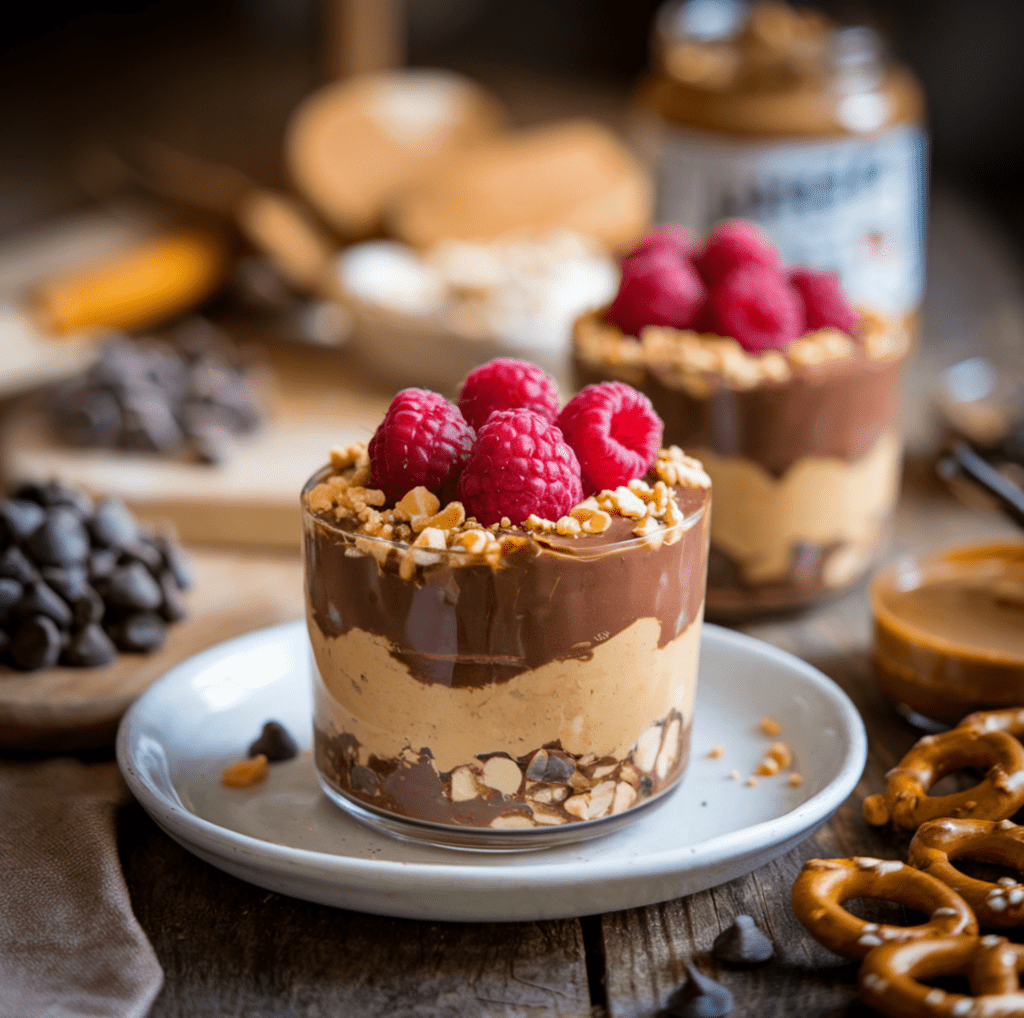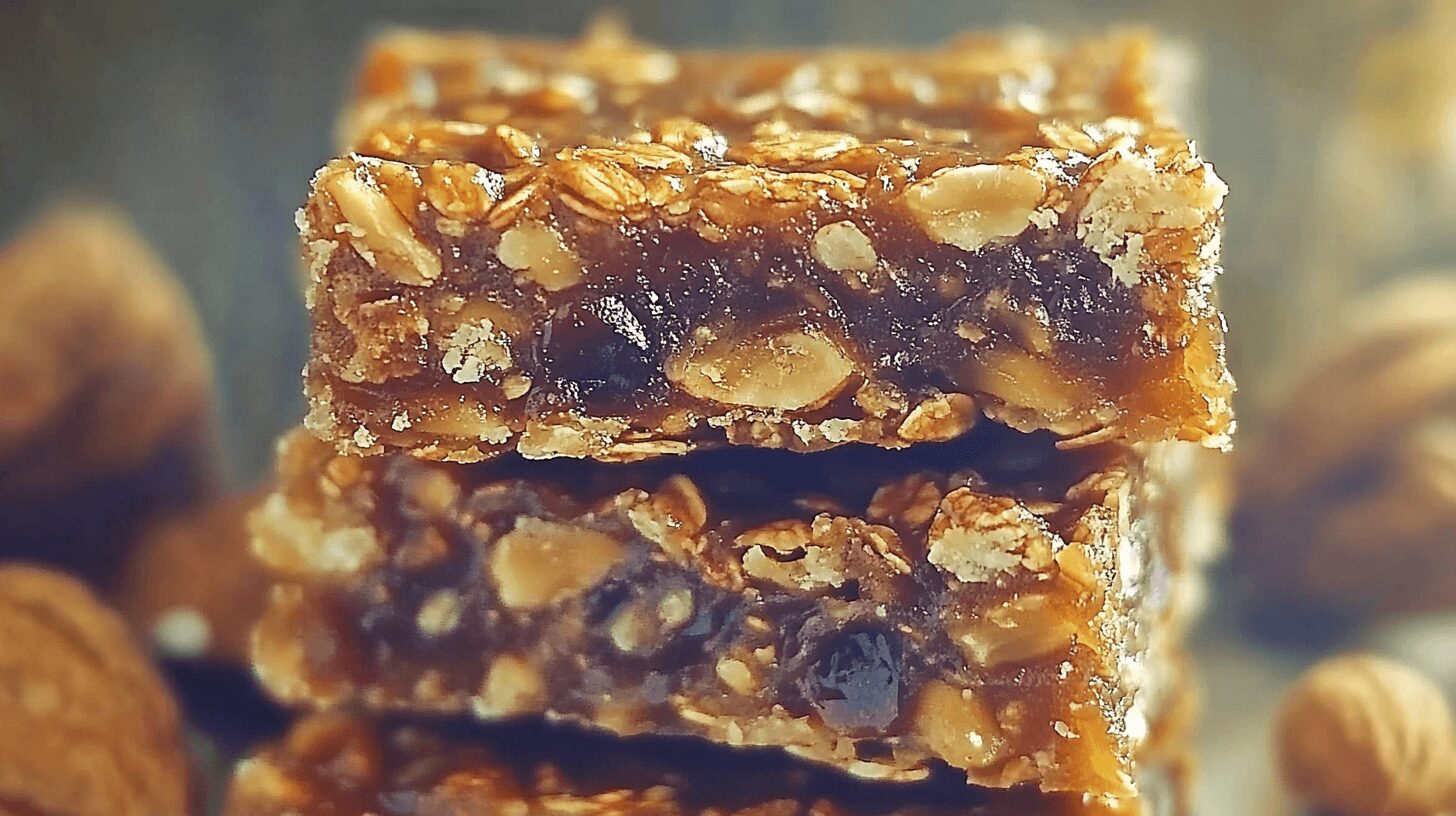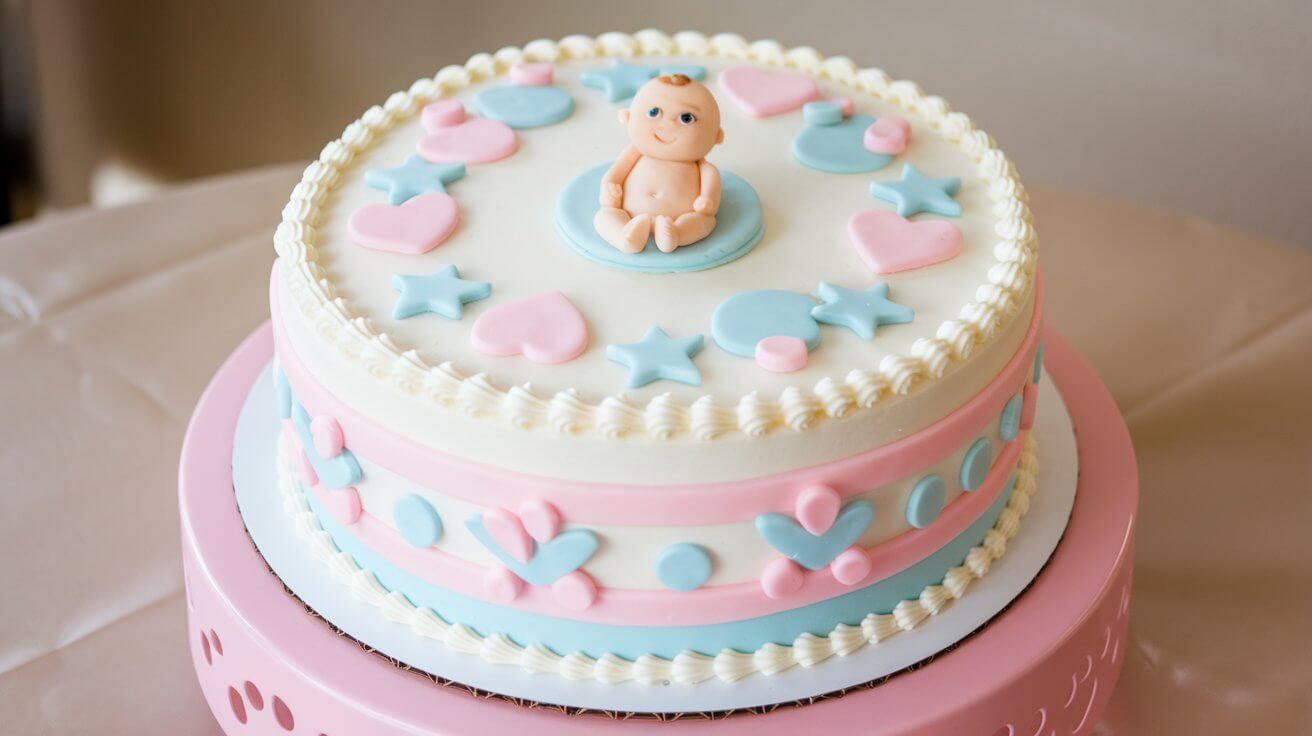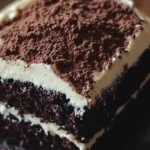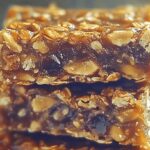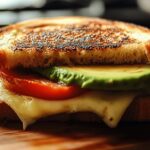Introduction
For those with gluten sensitivities or celiac disease, finding safe and delicious treats can be challenging. Among the most beloved snacks, Reese’s Frozen Peanut Butter Dessert Cups often spark questions: Are Reese’s Frozen Peanut Butter Dessert Cups gluten-free?
This article not only answers this question but also provides tips, creative recipes, and alternative dessert cups. Moreover, we’ll explore how to make gluten-free options at home and include frequently asked questions about dessert cups. Above all, this comprehensive guide ensures you can enjoy your treats safely and deliciously.
Are Reese’s Frozen Peanut Butter Dessert Cups Gluten-Free?
The central question remains whether these iconic treats are safe for individuals following a gluten-free diet. Reese’s Frozen Peanut Butter Dessert Cups are not certified gluten-free. Although they do not contain wheat or barley as direct ingredients, the manufacturing process may pose a risk of cross-contamination with gluten-containing products. Consequently, these dessert cups are not recommended for those with celiac disease or severe gluten sensitivities.
Why Are They Not Certified Gluten-Free?
Certification as gluten-free requires rigorous testing and adherence to strict guidelines to ensure no trace amounts of gluten are present. While Reese’s Frozen Peanut Butter Dessert Cups may not intentionally include gluten ingredients, cross-contact can occur during production. For instance, shared equipment or facilities that process gluten-containing products could introduce trace amounts of gluten. As a result, this makes the product unsafe for those with severe gluten intolerances.
Who Should Be Concerned?
- Individuals with Celiac Disease: Even small traces of gluten can cause harmful reactions.
- People with Gluten Sensitivities: Those with mild to moderate gluten intolerance may also experience adverse effects.
- The Gluten-Free Lifestyle: For those strictly avoiding gluten for dietary preferences, it’s essential to be cautious.
In summary, if you have a medical condition or strict dietary restriction, it’s best to err on the side of caution and opt for certified gluten-free alternatives.
What Are the Ingredients in Reese’s Frozen Peanut Butter Dessert Cups?
To better understand whether these dessert cups align with a gluten-free diet, let’s take a closer look at their ingredients:
Peanut Butter Filling
The rich and creamy peanut butter filling is made using:
- Sugar: Provides sweetness and balance.
- Vegetable Oils: Used for texture and stability.
- Peanuts: The star ingredient, adding a nutty and savory flavor.
- Salt: Enhances the overall taste.
This filling may appear naturally gluten-free; however, cross-contamination risks must still be considered.
Chocolate Coating
The chocolate shell that encases the peanut butter filling contains:
- Cocoa: The primary flavor component of the chocolate.
- Sugar: Adds sweetness to the coating.
- Milk: Contributes to the smooth and creamy texture.
While these ingredients themselves do not contain gluten, shared production lines may result in cross-contact with gluten-containing ingredients.
Additives
Reese’s Frozen Peanut Butter Dessert Cups also include stabilizers and emulsifiers, which help maintain their shape and texture. These may include:
- Soy Lecithin: A common emulsifier used in chocolate products.
- Artificial Flavors or Colors: These are often added for consistency and taste.
Cross-Contact Risks
In addition, even though the listed ingredients seem gluten-free, the manufacturing environment plays a critical role. Facilities producing Reese’s products may also handle other products containing gluten. Therefore, always check the packaging for allergen warnings or advisory statements such as “may contain wheat.”
How to Identify Gluten-Free Products
When shopping for gluten-free options, follow these tips to ensure safety:
- Check Labels: Look for “Certified Gluten-Free” logos or labels clearly stating the product is gluten-free.
- Read Ingredient Lists: Carefully examine the ingredient list for potential gluten-containing components or allergen warnings.
- Contact Manufacturers: If in doubt, reach out to the company for more detailed information about their production practices.
In conclusion, while Reese’s Frozen Peanut Butter Dessert Cups may appear gluten-free at first glance, their lack of certification and cross-contact risks make them unsuitable for those adhering strictly to a gluten-free diet.
Where Can I Buy Reese’s Frozen Peanut Butter Dessert Cups?
Reese’s Frozen Peanut Butter Dessert Cups are widely available in various locations. For example, you can find them in grocery stores, convenience stores, and online marketplaces. In addition, many popular retailers stock them, including:
- Amazon
- Walmart
- Target
- Instacart
However, when buying online, ensure the packaging is intact, and always check the label for updated allergen information.
Gluten-Free Alternatives to Reese’s Frozen Peanut Butter Dessert Cups
If you’re looking for gluten-free options, there are plenty of alternatives available. Moreover, these options can be just as satisfying while being safe for those avoiding gluten.
Store-Bought Gluten-Free Dessert Cups
- Halo Top Peanut Butter Cup Ice Cream:
- In fact, this is a low-calorie and certified gluten-free option.
- So Delicious Dairy-Free Frozen Desserts:
- Additionally, these are made with almond or coconut milk and often certified gluten-free.
- Enlightened Ice Cream Cups:
- Moreover, these offer a range of gluten-free flavors that cater to dietary restrictions.
Homemade Gluten-Free Dessert Cups
On the other hand, making your own dessert cups ensures complete control over the ingredients. Consequently, you can create delicious treats tailored to your dietary needs.
How to Make Gluten-Free Dessert Cups
Ingredients You’ll Need
- 1 cup gluten-free peanut butter
- 1/2 cup powdered sugar
- 1 cup gluten-free chocolate chips
- 2 tbsp coconut oil
Step-by-Step Instructions
- Prepare the Filling:
Mix peanut butter and powdered sugar until smooth. As a result, you’ll have a creamy and thick filling. - Melt the Chocolate:
Combine chocolate chips and coconut oil. Next, microwave in 15-second intervals, stirring each time until fully melted. - Assemble the Cups:
- For example, pour a thin layer of melted chocolate into cupcake liners.
- Then, add a peanut butter disc or ball, followed by more melted chocolate.
- Freeze and Enjoy:
Finally, place the cups in the freezer for at least 1 hour before serving.
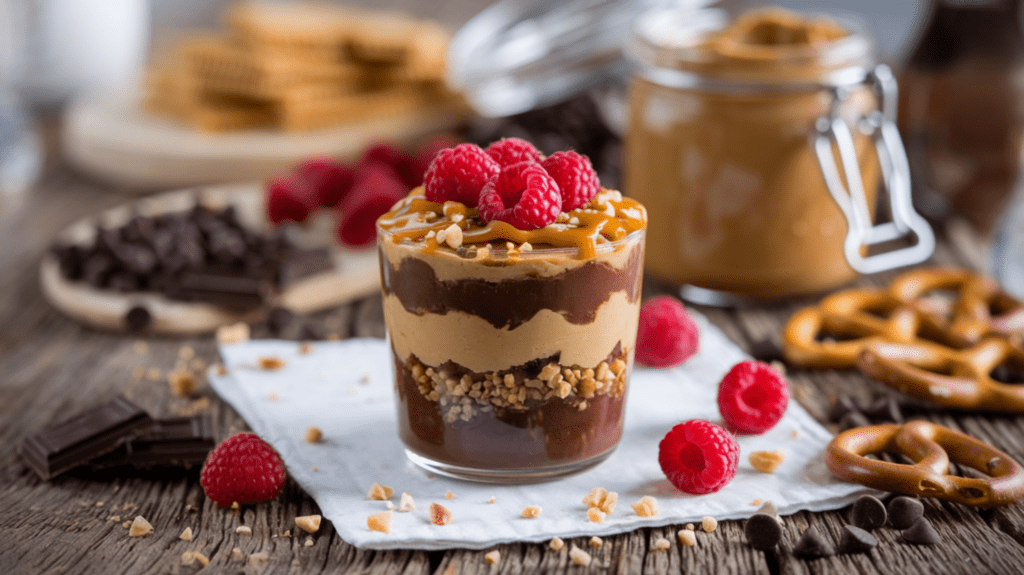
Creative Variations for Gluten-Free Dessert Cups
Not only can you make your dessert cups gluten-free, but you can also get creative with the flavors to cater to your preferences or dietary needs. You can transform a simple dessert into something extraordinary by experimenting with different ingredients, textures, and toppings. Additionally, these variations bring fun and flair to your treats, making them perfect for any occasion, from casual snacking to special celebrations.
Add Crunch for Texture
For instance, incorporating a bit of crunch can elevate your dessert cups to a new level. Consider mixing in:
- Crushed Gluten-Free Pretzels add a salty, crunchy contrast to the creamy peanut butter filling.
- Rice Crisps: For a light and airy crunch, rice crisps are an excellent choice.
- Gluten-Free Granola: Add a wholesome and flavorful crunch by layering granola into your dessert cups.
Adding crunchy elements enhances the texture and provides a delightful balance of flavors.
Experiment with Flavors
Similarly, you can swap the classic peanut butter filling for other spreads to create unique flavor profiles. Here are a few ideas:
- Almond Butter: Offers a subtle nutty flavor with a hint of sweetness.
- Nutella: Adds a rich, chocolate-hazelnut twist that pairs perfectly with the chocolate shell.
- Cookie Butter: This creamy, spiced alternative delivers a warm, comforting flavor.
You can also mix flavors, such as combining almond butter with a touch of honey or pairing Nutella with a dash of cinnamon for an added kick.
Top It Off with Creative Garnishes
Above all, the right toppings can elevate your dessert cups’ visual appeal and taste. Some ideas include:
- Sea Salt: A sprinkle of coarse sea salt enhances the sweetness of the chocolate and peanut butter.
- Coconut Flakes: Adds a tropical flair and light texture.
- Crushed Nuts: For a nutty crunch, try crushed almonds, pecans, or pistachios.
- Fruit Slices: Fresh berries or banana slices look stunning and add a burst of natural sweetness.
These garnishes allow you to customize your dessert cups for various occasions, making them eye-catching and delicious.
Create Vegan-Friendly Options
Additionally, with a few substitutions, you can make your dessert cups vegan-friendly without sacrificing taste or quality. Here’s how:
- Use Dairy-Free Chocolate: Opt for high-quality dark chocolate that doesn’t contain milk.
- Replace Regular Powdered Sugar: Use vegan powdered sugar made without bone char.
- Choose Vegan Peanut Butter or Spreads: Ensure your nut butter is free from added dairy ingredients.
These simple swaps make your dessert cups inclusive for those following a plant-based diet, while still delivering indulgent flavors.
Combine Ideas for Endless Possibilities
The beauty of gluten-free dessert cups lies in their versatility. You can combine several of these ideas to create your signature variation. For example, layer almond butter with gluten-free granola and top it off with fresh berries for a sophisticated treat. Alternatively, try Nutella with crushed rice crisps and a drizzle of caramel for a decadent twist.
What to Put in Dessert Cups?
Dessert cups are a versatile and creative way to indulge your sweet cravings, as they allow for endless combinations of flavors and textures. Whether you’re making them for a special occasion or as a quick treat at home, the possibilities for fillings are nearly limitless. In short, dessert cups are the perfect canvas for your culinary imagination.
Fruits for Freshness
For example, adding fresh fruits to your dessert cups can provide a natural sweetness and a refreshing contrast to creamy or rich components. Consider these options:
- Strawberries: Slice them for a vibrant and juicy topping.
- Raspberries: Add a tart, elegant touch that pairs beautifully with chocolate or cream.
- Banana Slices: These offer a smooth, sweet flavor that complements caramel or peanut butter.
- Blueberries or Blackberries: Perfect for adding bursts of flavor and a pop of color.
Fruits enhance the flavor and make your dessert cups visually appealing and nutritious.
Creams for Richness
Similarly, creamy fillings create a luxurious texture and add indulgence to your dessert cups. Some popular options include:
- Whipped Cream: Light, airy, and easy to prepare, whipped cream works as both a filling and a topping.
- Mascarpone Cheese: This creamy, slightly tangy cheese adds a sophisticated touch to dessert cups.
- Cream Cheese Frosting: Perfect for adding a decadent and slightly tangy flavor, especially when paired with fruits or chocolate.
- Custard or Pudding: These rich and smooth options serve as a wonderful base for layering other ingredients.
Creams create a soft, velvety texture that balances well with crunchy or fruity elements.
Mix-Ins for Flavor Variety
Additionally, mix-ins can elevate your dessert cups by introducing new flavors and textures. These add-ins allow for customization and creativity:
- Chocolate Chips: Add a delightful crunch and rich cocoa flavor.
- Caramel Sauce: Drizzle over the layers for a sweet, buttery note.
- Peanut Butter Drizzle: This adds a creamy, nutty flavor that pairs beautifully with chocolate or bananas.
- Toffee Bits or Crushed Cookies: Sprinkle on top for a crunchy finish.
These mix-ins are perfect for creating unique flavor combinations tailored to your preferences.
Other Creative Additions
In contrast to traditional fillings, you can also experiment with non-conventional ingredients to make your dessert cups stand out.
- Granola or Crushed Nuts: Add a crunchy, wholesome texture.
- Marshmallow Fluff: A fun and gooey addition that kids love.
- Edible Flowers: For a decorative and elegant touch.
- Coconut Shreds: Ideal for adding a tropical twist.
These creative additions enhance the flavor and make your dessert cups memorable and unique.
Dessert Cups Nutrition: What You Should Know
Understanding the nutritional content of your dessert cups is essential. In fact, Reese’s Frozen Peanut Butter Dessert Cups are indulgent treats but come with a high sugar and fat content.
Nutritional Highlights (Per Serving):
- Calories: ~210
- Fat: ~13g
- Sugar: ~18g
- Protein: ~4g
Because of this, you might prefer gluten-free alternatives that are lower in sugar and calories. Consequently, these options can be healthier and just as delicious.
FAQs About Reese’s Frozen Peanut Butter Dessert Cups
Are Reese’s Frozen Peanut Butter Dessert Cups Certified Gluten-Free?
No, they are not certified gluten-free. However, they do not contain direct gluten ingredients but may be cross-contaminated during manufacturing. To learn more about gluten-free alternatives and details, click here.
Where Can I Buy Magic Cup Dessert?
Magic Cup Desserts are a creamy and popular option in healthcare settings, specialty food stores, and online platforms like Amazon. If you’re looking for more detailed guidance on where to buy them, click here.
How Can I Make My Dessert Cups?
Making your dessert cups at home is a fun and customizable way to enjoy this treat. You can create a dessert that suits your taste by following simple recipes and using gluten-free ingredients. For a step-by-step guide, click here.
What Are the Nutrition Facts for Dessert Cups?
In short, the nutritional content of dessert cups varies by brand and ingredients used. Always check the product label or recipe details for accurate information about calories, fats, and sugars. For more insights into dessert cup nutrition, click here.
What Else Can I Put in Dessert Cups?
For instance, you can enhance your dessert cups by adding fresh fruits, rich creams, or fun toppings like sprinkles or nuts. The possibilities are endless, and they allow you to get creative with flavors and textures. To explore innovative ideas for fillings, click here.
For additional ideas and recipes related to dessert cups, visit our comprehensive guide here.
Conclusion
In conclusion, while Reese’s Frozen Peanut Butter Dessert Cups may not be certified gluten-free, there are numerous alternatives that cater to those with gluten sensitivities or dietary preferences. Above all, making your own dessert cups at home ensures they are both safe and delicious, giving you complete control over the ingredients and preparation process.
Moreover, exploring creative variations and experimenting with flavors—such as incorporating fresh fruits, rich creams, or crunchy mix-ins—can make these treats even more enjoyable. Whether you opt for store-bought gluten-free options or try homemade recipes, dessert cups are a versatile and delightful addition to your gluten-free lifestyle.
Finally, it’s essential to always read ingredient labels and allergen warnings to make informed decisions. For accurate and up-to-date information on gluten-free products, visit trusted sources like the Celiac Disease Foundation or the Gluten-Free Certification Organization for guidance.
Additionally, if you’re interested in exploring gluten-free alternatives to Reese’s products, check the official Hershey’s Product Allergen Information Page to find detailed allergen disclosures and manufacturing practices.
In short, safe and satisfying treats are within your reach, whether you choose to purchase pre-made gluten-free options or get creative in your kitchen. Enjoy every bite with confidence and peace of mind!
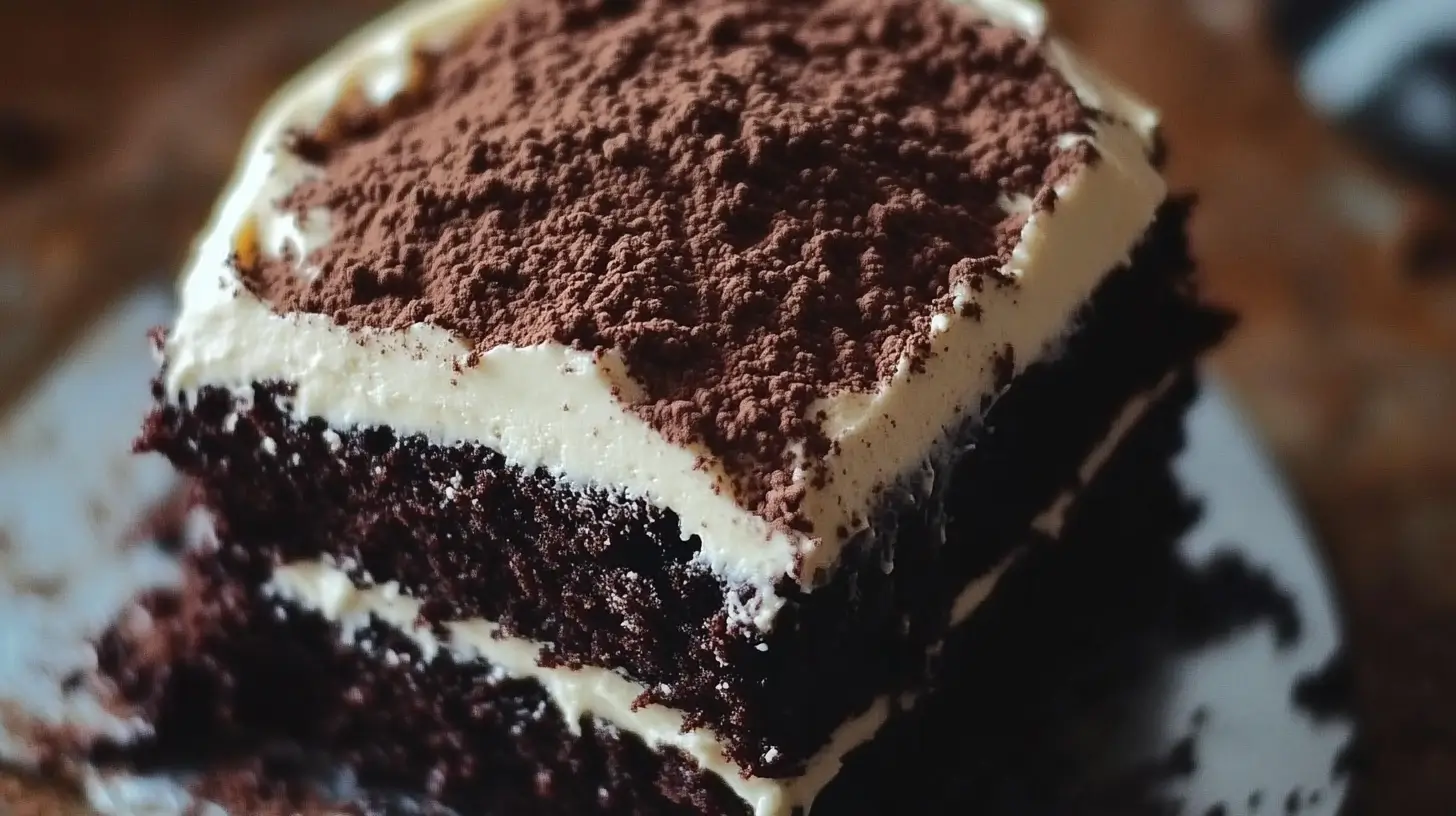
Chocolate Guinness Cake with Baileys Buttercream
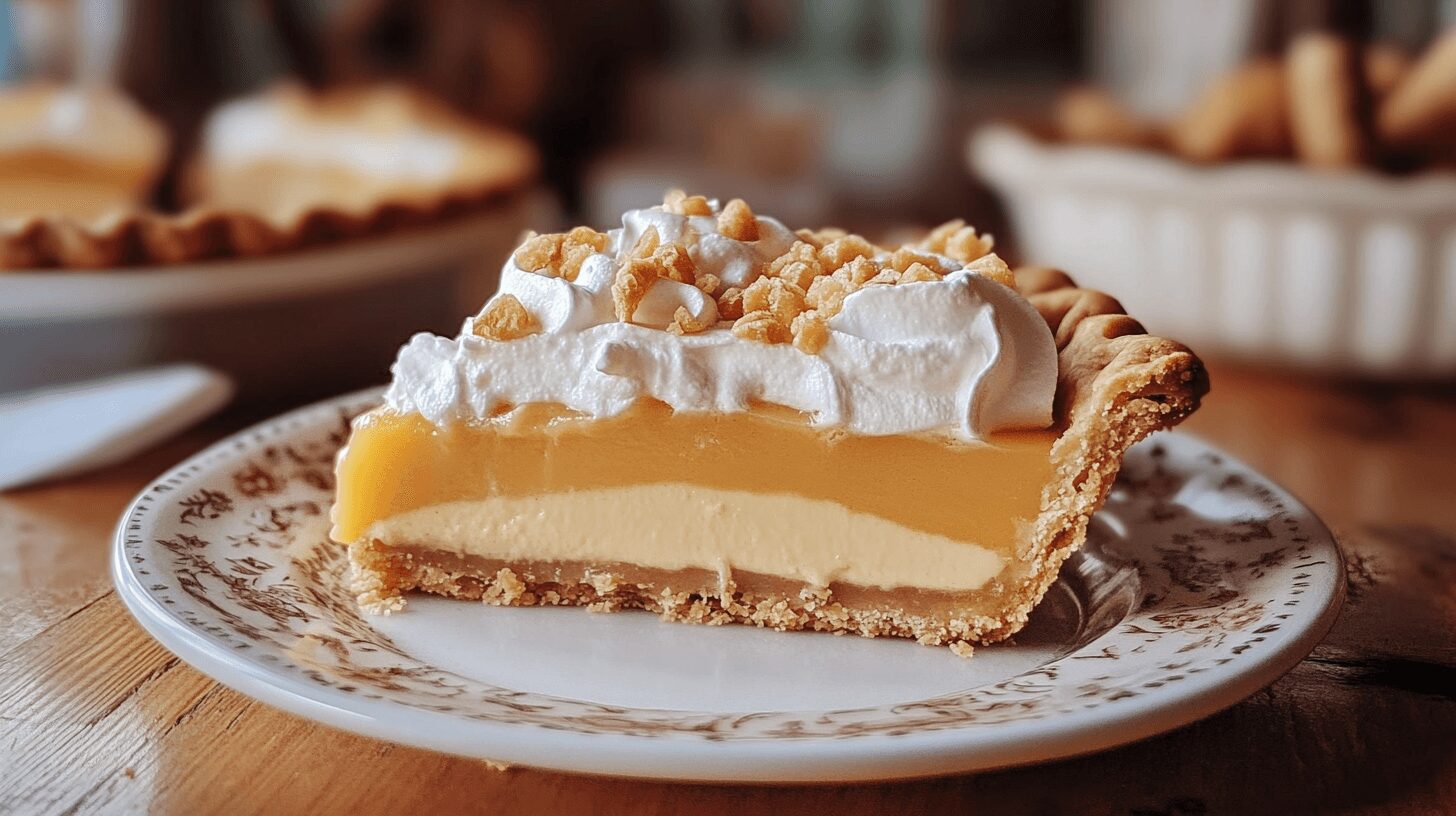
Ultimate Dolly Parton Butterscotch Pie: 5 Sweet Reasons to Try This Classic Dessert
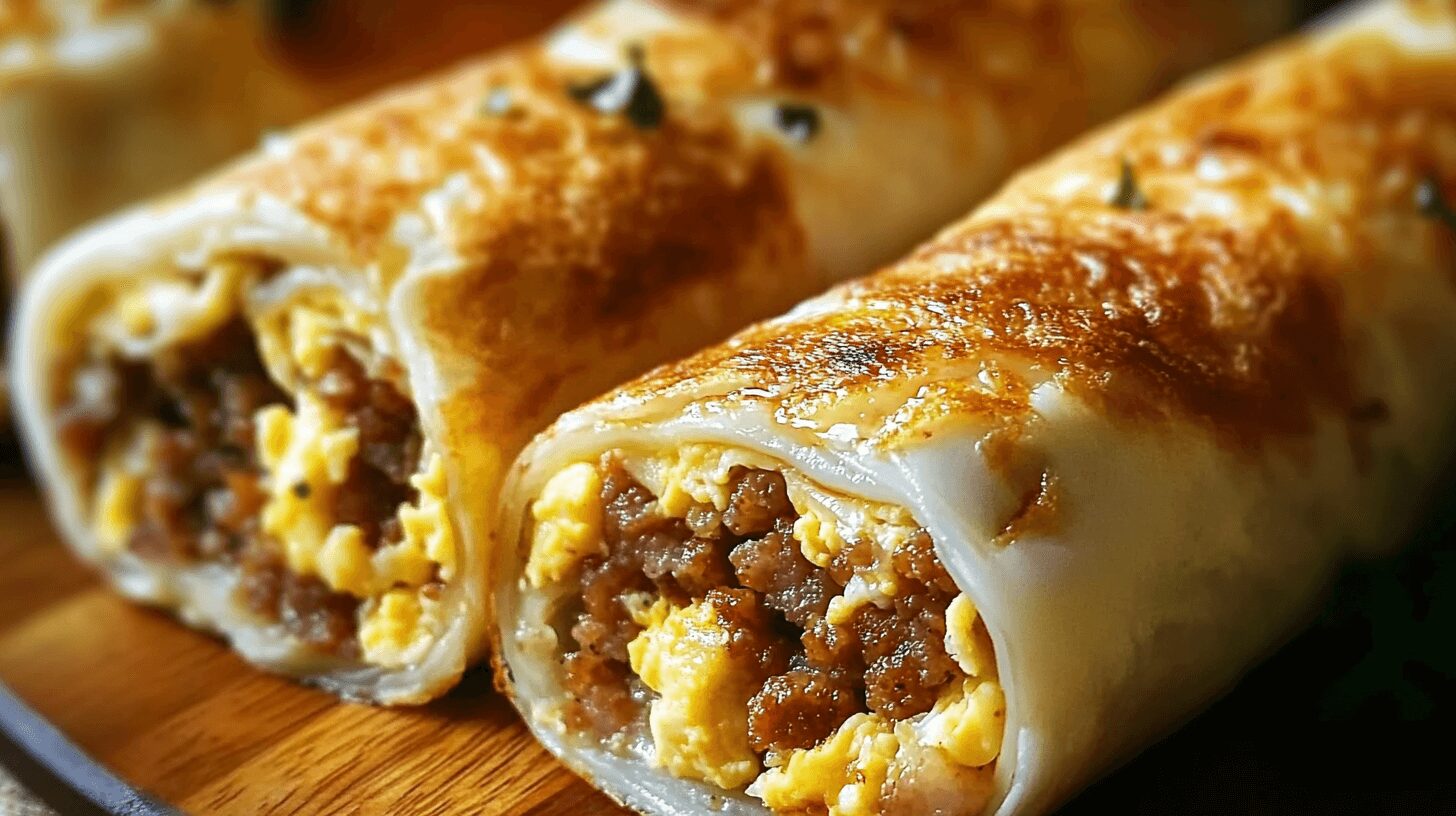
5-Minute Sausage Egg and Cheese Breakfast Roll-Ups: The Perfect Morning Delight
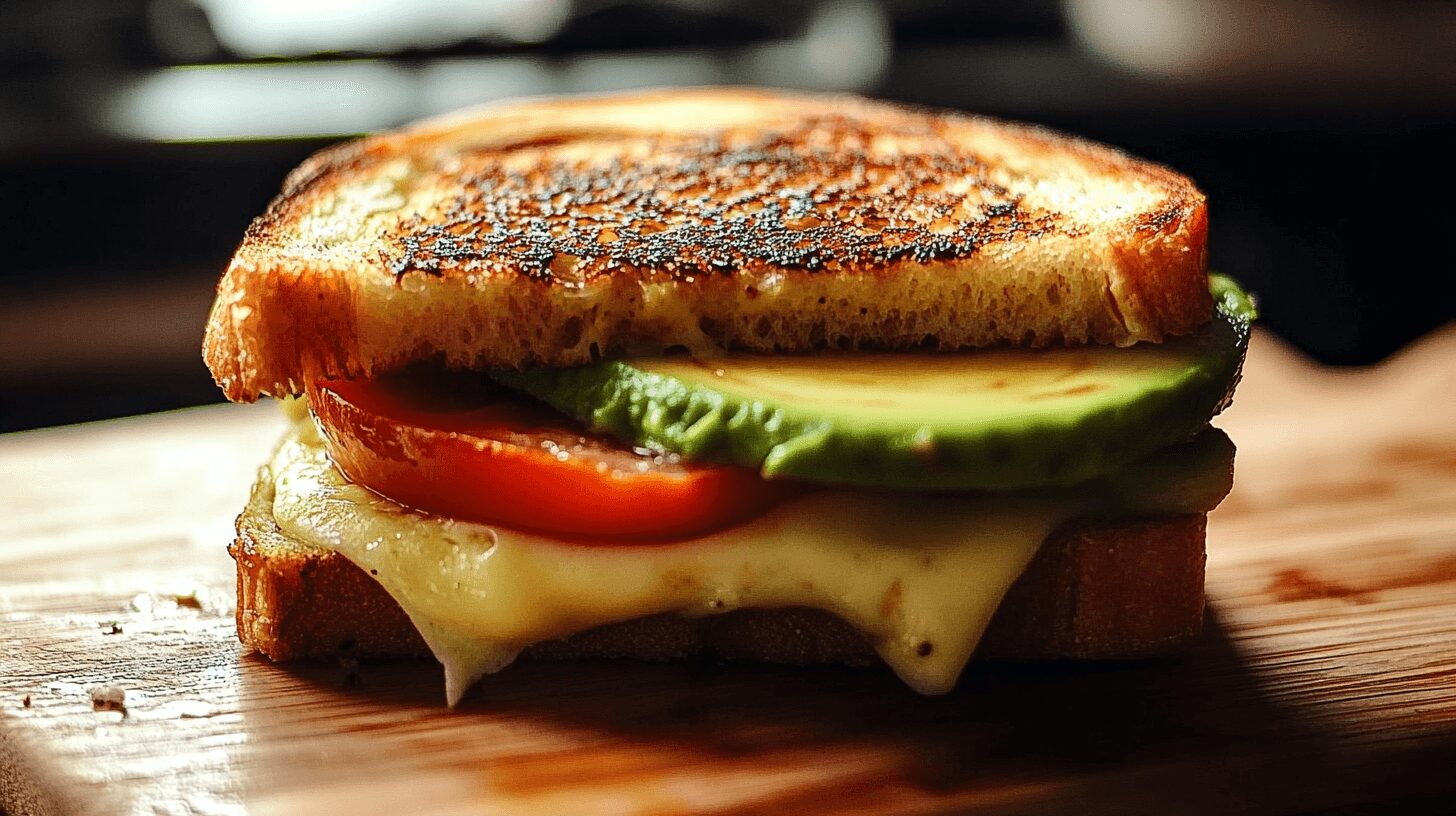
Healthy Avocado Grilled Cheese: 5 Reasons to Try This Nutritious Twist on a Classic
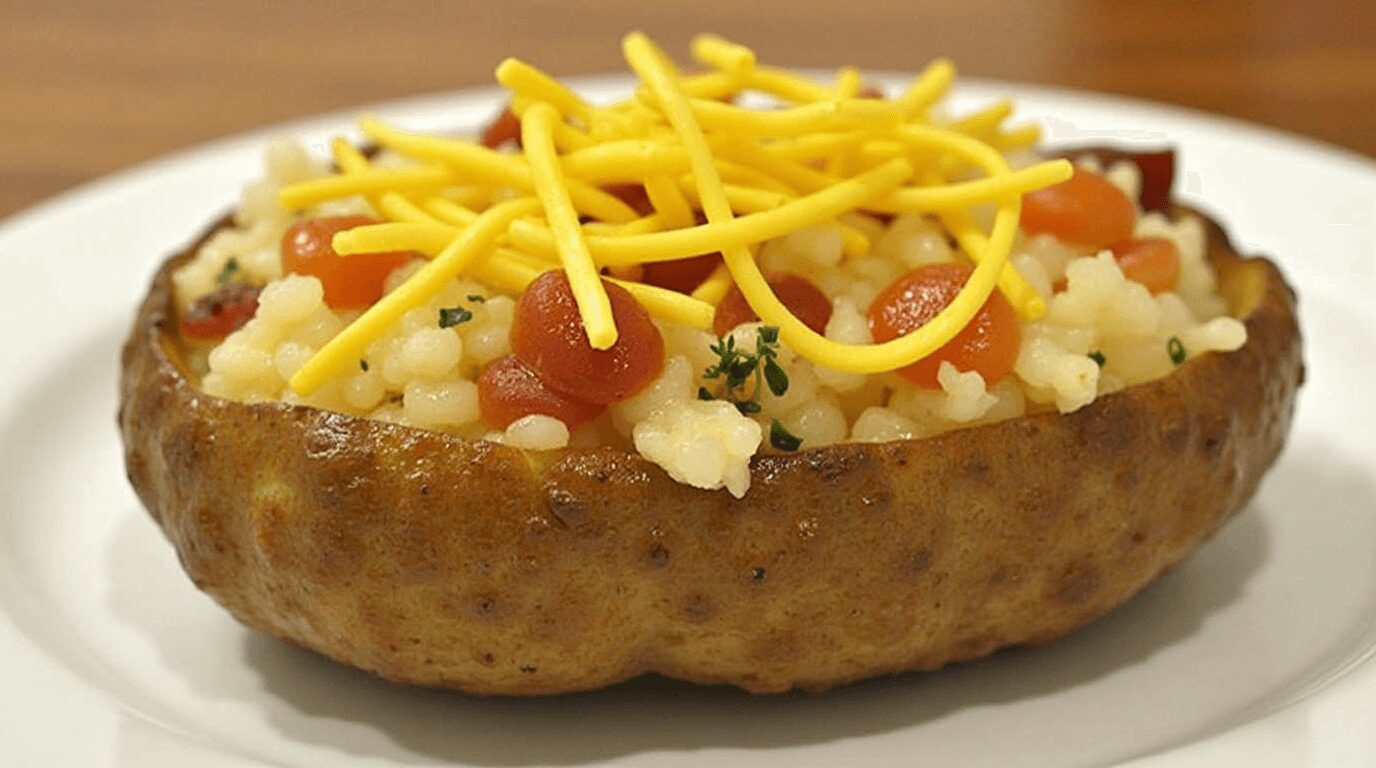
7 Reasons to Love Smothered Potatoes: A Delicious and Nutritious Comfort Food
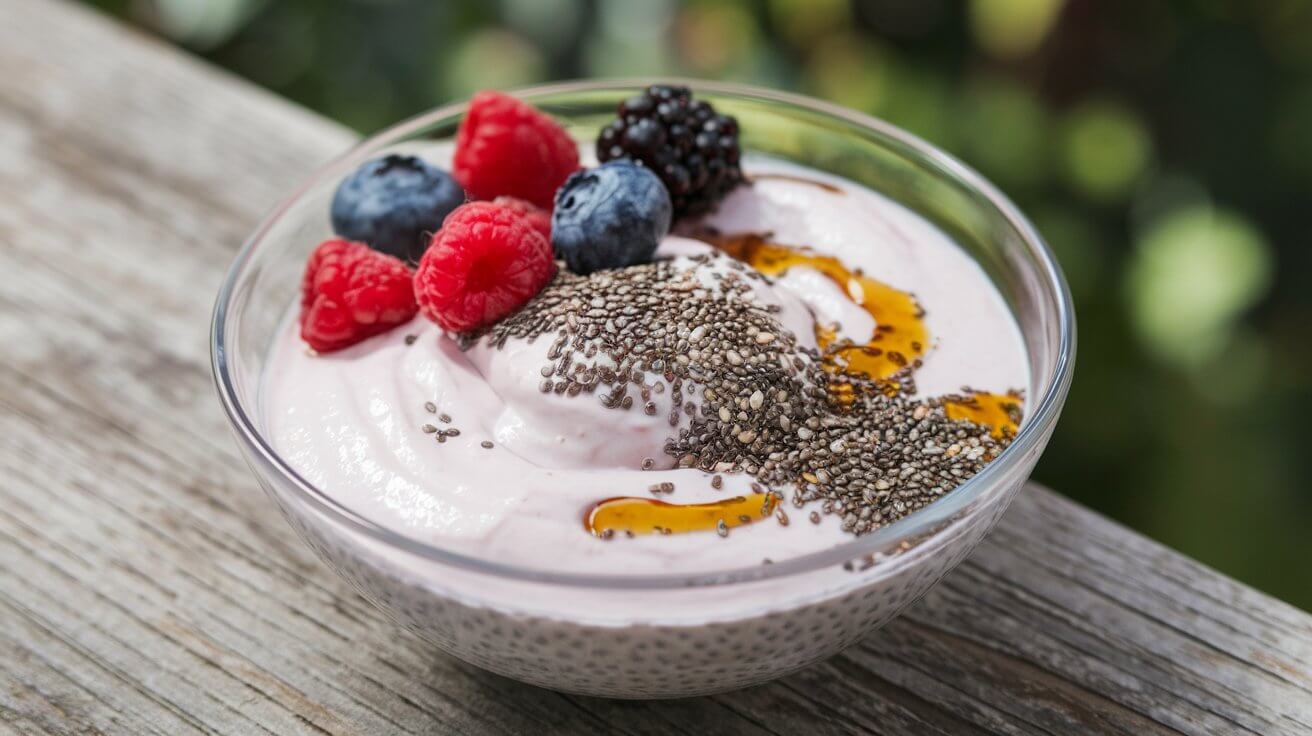
Greek Yogurt Chia Pudding: 5 Reasons This Simple, Healthy Treat is a Game-Changer


